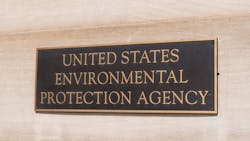US EPA to delay methane rules on oil, gas drilling by 18 months
The US Environmental Protection Agency (EPA) will delay for 18 months the implementation of new limits on methane emissions from oil and gas development, even as it considers scrapping the 2024 Biden-era rule completely.
EPA proposed to delay until January 22, 2027, the deadline to install methane control devices, continuous monitoring and leak detection equipment, and comply with leak repair and emissions requirements.
The Biden EPA finalized the rule for stricter methane control in a bid to limit both methane and volatile organic compound emissions from existing operations (OGJ Online, Dec. 4, 2023).
The July 28 action is in response to “legitimate concerns, raised by stakeholders, that certain regulatory provisions are not currently workable or contain problematic regulatory language that frustrates compliance,” EPA said, calling the Biden proposal “untenable from a compliance perspective on the original timeframes.”
Oil and natural gas facilities are the nation’s largest industrial source of methane, a pollutant more potent than CO2 and responsible for about one-third of the warming from greenhouse gases, the EPA has said.
In a recent statement, EPA said the implementation delay is part of the Trump administration’s strategy to “unleash the nation’s domestic energy supply.”
The administration has already suggested it would seek to reverse this and other methane rules instituted in the Biden administration, an approach that the administration’s July 29 move to reverse EPA’s 2009 endangerment finding could help.
In the Obama administration, EPA declared that greenhouse gas emissions (GHG), including methane and CO2, endanger public health and welfare, paving the way for rules that limited emissions from power plants, required clean coal technology, and spurred a transition toward electric vehicles.
If reversed, the EPA could withdraw its climate change rules because the finding provides the rationale most GHG emissions regulations.
About the Author
Cathy Landry
Washington Correspondent
Cathy Landry has worked over 20 years as a journalist, including 17 years as an energy reporter with Platts News Service (now S&P Global) in Washington and London.
She has served as a wire-service reporter, general news and sports reporter for local newspapers and a feature writer for association and company publications.
Cathy has deep public policy experience, having worked 15 years in Washington energy circles.
She earned a master’s degree in government from The Johns Hopkins University and studied newspaper journalism and psychology at Syracuse University.
